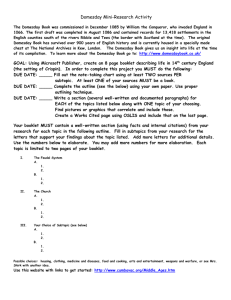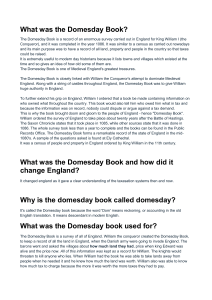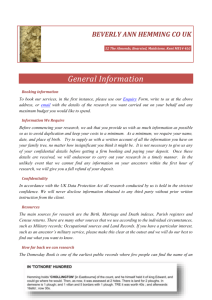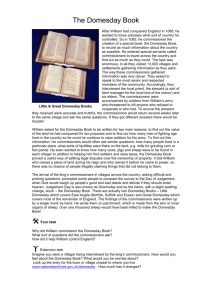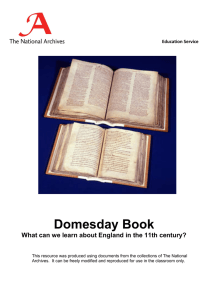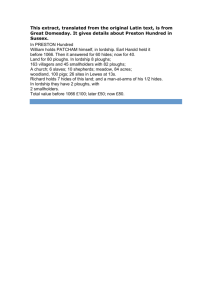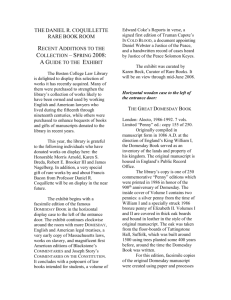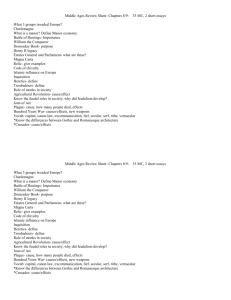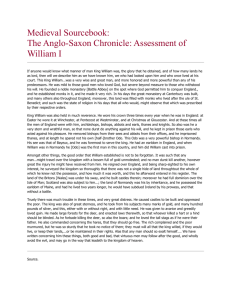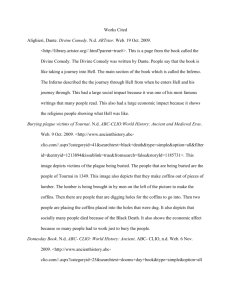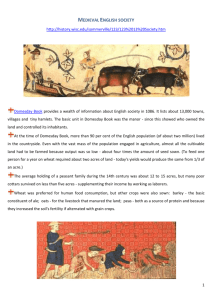here - Spartacus Educational
advertisement
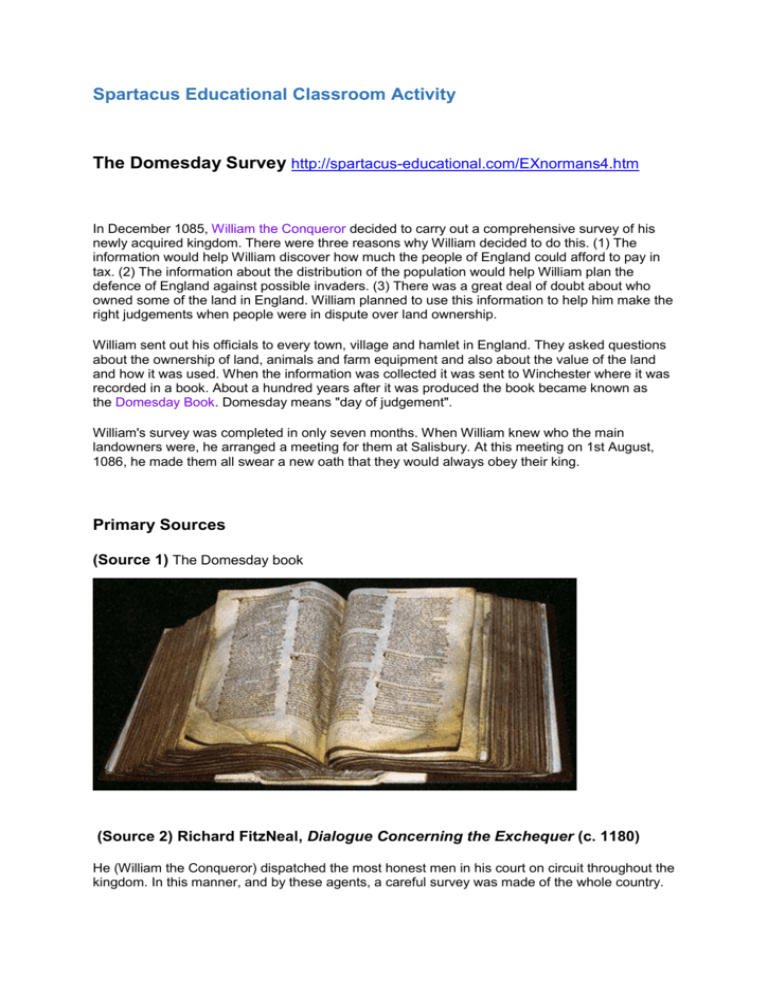
Spartacus Educational Classroom Activity The Domesday Survey http://spartacus-educational.com/EXnormans4.htm In December 1085, William the Conqueror decided to carry out a comprehensive survey of his newly acquired kingdom. There were three reasons why William decided to do this. (1) The information would help William discover how much the people of England could afford to pay in tax. (2) The information about the distribution of the population would help William plan the defence of England against possible invaders. (3) There was a great deal of doubt about who owned some of the land in England. William planned to use this information to help him make the right judgements when people were in dispute over land ownership. William sent out his officials to every town, village and hamlet in England. They asked questions about the ownership of land, animals and farm equipment and also about the value of the land and how it was used. When the information was collected it was sent to Winchester where it was recorded in a book. About a hundred years after it was produced the book became known as the Domesday Book. Domesday means "day of judgement". William's survey was completed in only seven months. When William knew who the main landowners were, he arranged a meeting for them at Salisbury. At this meeting on 1st August, 1086, he made them all swear a new oath that they would always obey their king. Primary Sources (Source 1) The Domesday book (Source 2) Richard FitzNeal, Dialogue Concerning the Exchequer (c. 1180) He (William the Conqueror) dispatched the most honest men in his court on circuit throughout the kingdom. In this manner, and by these agents, a careful survey was made of the whole country. (Source 3) Bishop Robert of Hereford wrote in 1086 about William's survey of England. In the twentieth year of William, king of the English... made a written survey of his lands of the several provinces... A second group of commissioners followed those first sent, and those were strangers to the neighbourhood. (Source 4) Florence of Worcester was an English monk. He wrote this account of the Domesday survey in about 1125. King William caused all England to be surveyed... how many ploughs, villeins, animals, and livestock, each one possessed in his kingdom from the greatest to the least... And as a consequence the land was vexed with much violence. (Source 5) This illustration of the Domesday book was published in 1868. (Source 6) Anglo-Saxon Chronicle, Version E, entry for 1086 The king... sent his men over all England into every shire and had them find out... what land and cattle the king himself had in the country... Also he had a record made of how much land his archbishops had, and his bishops, and his abbots and his earls... what or how much everybody had who was occupying land in England, in land or cattle, and how much money it was worth. (Source 7) Domesday entry for Brooke in Norfolk. Brooke was held by Earl Gyrth in the time of King Edward and King William when he first came gave it to the abbey of St Edmund... There were then 33 villeins; now 38. Then as now 3 slaves. Now 3 ploughs on the demesne, and 6 ploughs belonging to the men. Woodland for 30 pigs, 9 acres of meadow. Now 5 rounceys, 14 beasts, 40 pigs. Now 65 sheep and 20 goats. Questions for Students Question 1: We only know the names of a few people who carried out the Domesday survey. One of these was the Bishop of Durham who was in charge of the survey in the south-east of England. Why do you think William chose a northern, rather than a southern bishop to carry out a survey of the south-west? Source 3 should help you answer this question. Question 2: Compare the value of sources 2, 3, 4, 5, 6, and 7 to a historian writing a book on the Domesday survey. Question 3: Give three reasons why William arranged for the Domesday survey to be carried out in 1086. Which reason do you think is most important?
